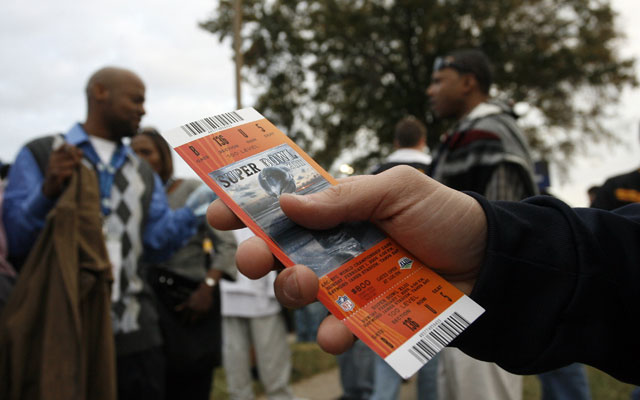Ordering the police to arrest every lawbreaker, no matter how trivial the offense or harmless the offender, appeals to legislators who want to appear “tough on crime.” But is that a reasonable policy when the crime is reselling baseball tickets at less than face value? As one unlucky tourist told the police officer who arrested him, “You’ve got to be kidding.”
He was not. Joe Carr was headed to jail, the victim of a “no discretion” policy that makes no economic or constitutional sense.
Joe’s luck went south shortly after his arrival in Washington, D.C., and proceeded to get worse. On Friday, June 7, Joe hosted five of his buddies on an annual baseball weekend. He booked a hotel room and purchased tickets for a night game featuring his hometown Minnesota Twins. As luck would have it, the games for which he had purchased tickets were rained out and had to be rescheduled.
Because neither Joe nor his friends would be able to attend, Joe went to Nationals Park to seek potential buyers for the tickets. He was not optimistic, so he tried to sell the tickets below the value that he had paid for them, seeking to minimize his losses.
At some point, he was approached by a uniformed officer and a trainee, told to stand against the wall, and ultimately hauled off to jail in handcuffs. The officer explained that he felt badly for Carr, but had “no discretion” in the matter. Had Joe not placed his price on the tickets or, alternatively, stood 15 feet further off the street, he’d have been spared the arrest, the handcuffs, the two-and-a-half hours in a cell, the mug shot, the fingerprinting, and the $50 processing fee that eventually secured his release.
The mandatory-arrest policy makes no sense from an economic point of view for small potatoes crimes like this one. As Joe points out, “The costs of my arrest, transport, and processing had to be many multiples of the $50 I paid.” It’s also inconceivable that the economic harm, if any, caused by reselling tickets below face value is comparable to the harm caused by other criminal activity that the arresting officer could have been policing while he was driving Joe to jail. It’s also plausible that the very fact that the city treats people who come from afar to spend money in this way will inflict financial harm upon the city by deterring tourists.
But, more importantly, the regulation, like much of modern criminal law, departs from established constitutional principles. There is nothing inherently wrongful about reselling tickets, and Joe did not know that what he was doing was illegal. A regulation that prohibits something that is not inherently wrongful and does not require proof that the individual knowingly violated the prohibition violates the doctrine of “fair notice.” In Bouie v. City of Columbia (1964), the Supreme Court held that due process requires laws comply with this doctrine, which has been part of Anglo-American law for centuries. Regulations like the one that ensnared Joe Carr fly in the face of this principle—their existence indicates that it’s being ignored.
The city should confine itself to protecting its citizens from physical violence and fraud, and leave peaceful entrepreneurs entirely alone. But if it must punish economic “crimes,” it might begin by prosecuting its own public officials, rather than unlucky tourists who pour hundreds of dollars into the local economy—only to find themselves paying their way out of the city’s jails.
Learn more about the flood of criminal laws threatening your liberty — Check out USA vs. You.




























